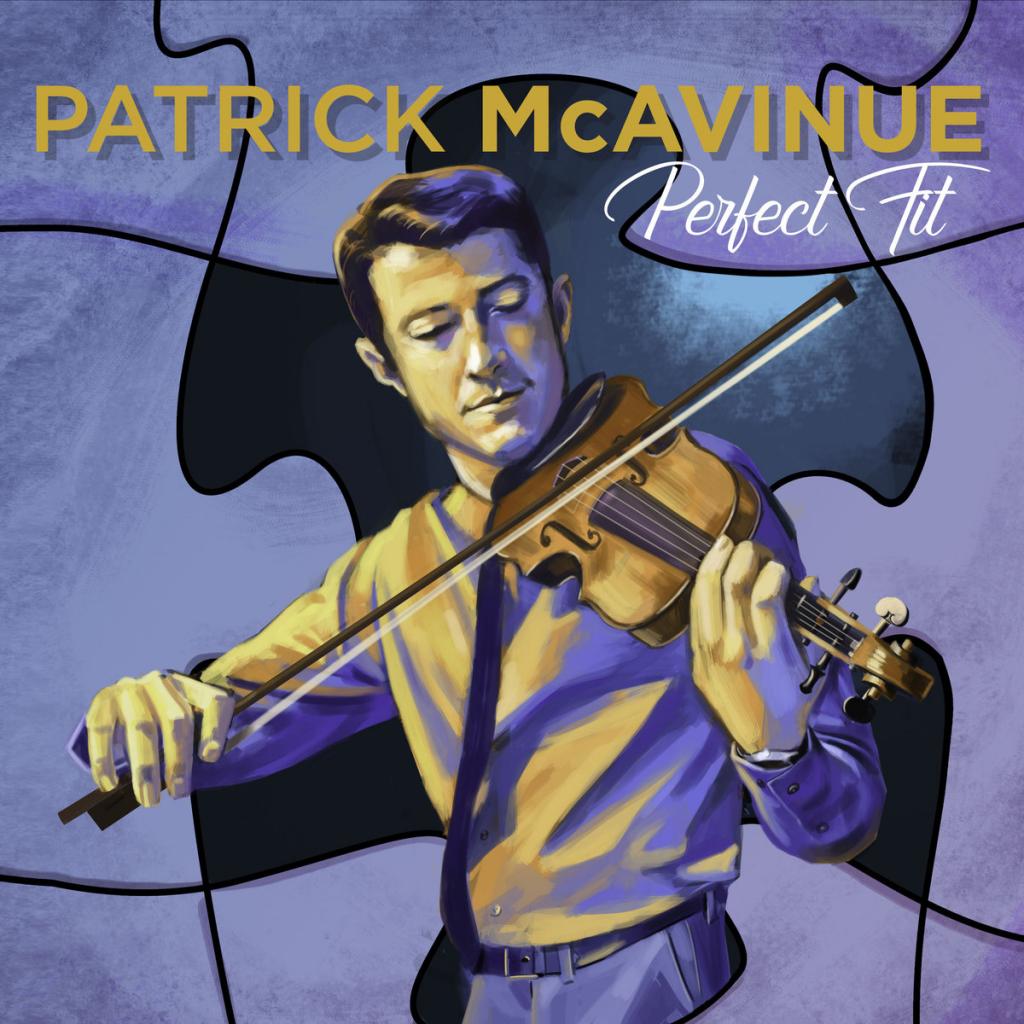Fiddler Patrick McAvinue Finds ‘Perfect Fit’ for Music from Multiple Traditions

Perfect Fit, the new solo album by award-winning fiddler Patrick McAvinue, is like a 12-course meal featuring more-than-ample helpings of bluegrass and Irish influence. By album’s end, listeners will experience everything from “Matyas A Margit,” a two-piece arrangement more akin to Bach than bluegrass, and “Ballou,” a jazzy instrumental likened in press materials to “Charlie Parker on a mandocaster.” Beyond those two extreme examples, McAvinue and his supporting cast dabble with different sounds and instrumentations while painting pastoral images alternating between Appalachia and the opposite side of the Atlantic.
Lessons learned while playing with Dailey & Vincent and Audie Blaylock & Redline shine through on hill-stomper “Burke House Fever Chills,” the buoyant “Voice in Your Ear,” and even a grassed-up reinterpretation of Radiohead’s “Gagging Order,” featuring Letitia VanSant on lead vocals. By no means do three songs make this a traditional bluegrass album, but they should offer enough incentive for even the most stringent fans of the genre to explore this musical atlas.
Trips beyond bluegrass’ typical mountain homes abound, reflecting McAvinue’s current Irish folk-inspired band Charm City Junction. Opening acoustic track “Waltz for Kelly” and high-energy jam session “Der Belsnickel” are steeped in European folk flavor, while “Claro Que Si!” delivers a jazzy, Latin feel that’s far removed from bluegrass tropes.
Not all songs puzzle-piece into a photo of McAvinue’s American or European influences. The title track, for example, conjures a mid-tempo stew of sounds that defies definition. “Prayer Under the Pressure of Violent Anguish,” sung by Cris Jacobs, deals with rustic, faith-based imagery in such a way that it simultaneously sounds like an old standard and a modern statement on personal faith. Finally, the five-and-a-half-minute folk soundscape “Carriage House” is another modern interpretation of age-old sounds that didn’t necessarily come from Kentucky or Killarney.
Overall, McAvinue explores his musical range by not sticking to one or two styles. In the process, he created a modern homage to the fiddle that’s rooted in multiple traditions.


